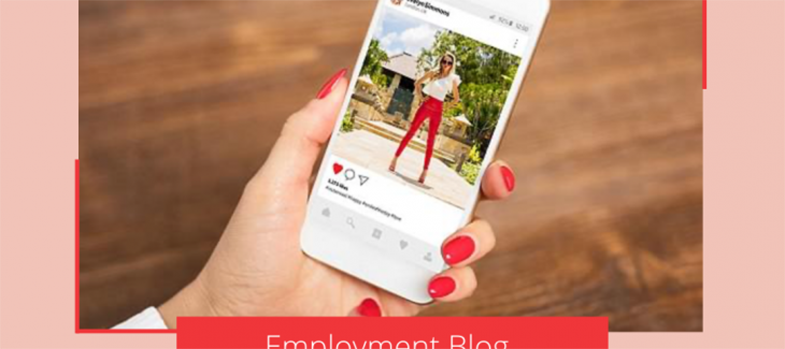CAN SOCIAL MEDIA STOP YOU GETTING A JOB?
What does your social media say about you? Is it a minute-by-minute reflection of your life, warts and all, or do you use it mainly to keep in touch with friends and family? Do you only post when you’ve got something important to say or do you intentionally spice it up to increase your followers?
If you are looking for a career change, it’s definitely worth taking a good look at your online presence and considering how it represents you to prospective employers. You may be thinking, “will companies really take the time to check out my social media accounts?” The answer is a big YES. Whilst job seekers use the internet to Google positions vacant and find out everything they can about their dream workplace, on the flipside potential employers can look in every nook and cranny online to learn all about you.
A study by the Society For Human Resource Management (SHRM) found that 84% of employers recruit via social media, and 43% of employers screen job candidates through social networks and search engines. The same study found 36% of companies have actually disqualified job candidates after doing an online search or viewing an applicant’s social media accounts.
In most cases, your skills and experience will be the most important factor about your application. However, for many employers, this is not the only quality they are looking for. For example, finding a candidate that appears to match the company’s values is often of equal importance.
So whilst you might have the strongest CV in order to nab that dream job, your skill set may slip down the rankings if an employer finds your online presence inappropriate and/or offensive, thereby jeopardising your chances of securing a position or even getting an interview.
A survey of more than 1000 industry recruiters and employers by Career Builder revealed that whilst they might not be searching for anything negative, more than half who were surveyed said they found something during their social screenings that led them to not hire someone.
According to the survey, these are the leading types of posts and behaviour that left employers with a bad impression:
- Job candidate posted provocative or inappropriate photographs, videos or information: 40%
- Job candidate posted information about them drinking or using drugs: 36%
- Job candidate had discriminatory comments related to race, gender, religion, etc.: 31%
- Job candidate was linked to criminal behaviour: 30%
- Job candidate lied about their qualifications: 27%
- Job candidate had poor communication skills: 27%
- Job candidate bad-mouthed their previous company or fellow employees: 25%
- Job candidate’s screen name was unprofessional: 22%
- Job candidate shared confidential information from previous employers: 20%
- Job candidate lied about an absence: 16%
Ultimately, your social media use is up to you as it is freedom of speech and personal choice. However, it is always good to keep in mind a few rules to ensure your online identity doesn’t tarnish your job search.
- Consider which accounts you want to be public and private. For your personal content, activate security settings so only friends and acquaintances can access that information.
- Carefully consider any photos you post online and also monitor any posted of you by other people. Photos of you can have an immediate perception of you and employers will judge you based on this.
- Never bad mouth any of your colleagues, bosses or companies you work for on social networking sites. A potential employer will not be impressed with someone who is happy to air their professional frustrations for the world to hear.
- Avoid using foul language, lewd remarks and insults on any public online domain.
- Always be cautious of who you accept as a friend, follower or contact on social media.
These tips should not make you fearful of your use of social media but being aware of your online image is always sensible. On the same note, it is unfair for employers to make judgment calls purely on a candidate’s social media account. Balance is key. Social networks are a ‘social platform’ after all, and your professionalism shouldn’t be judged solely on what you do away from the workplace.

